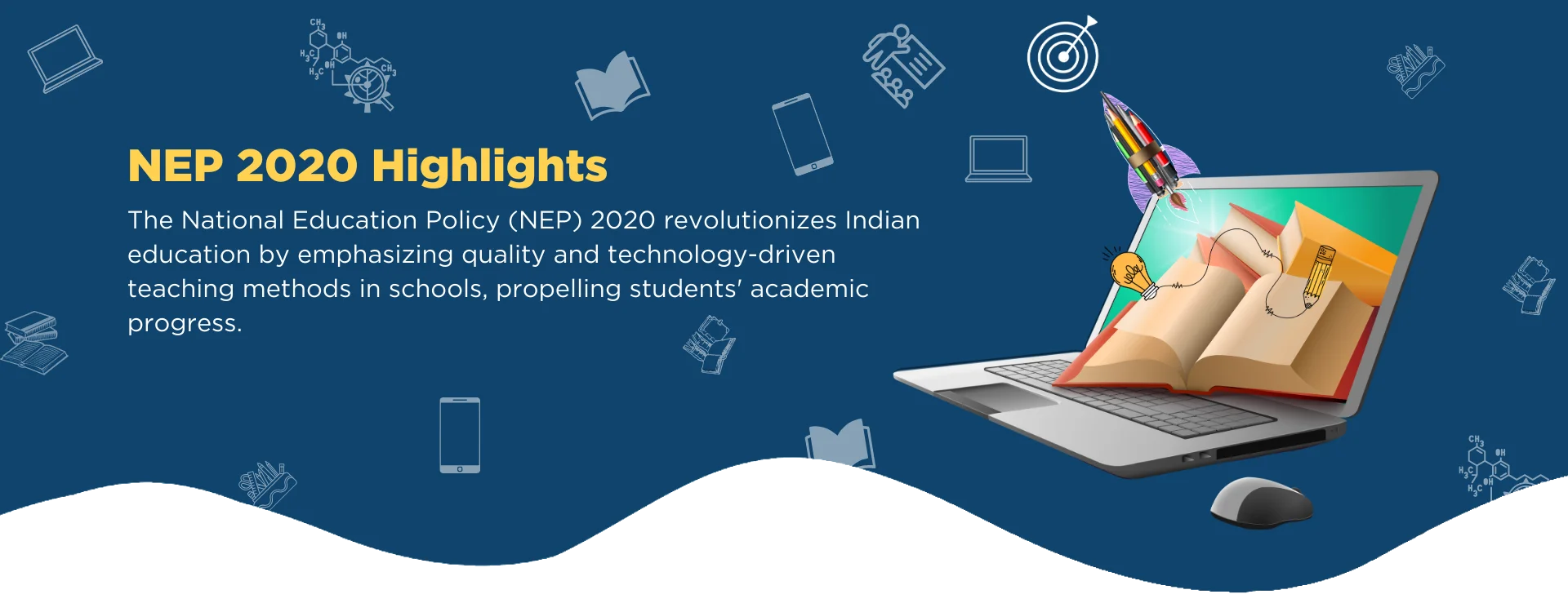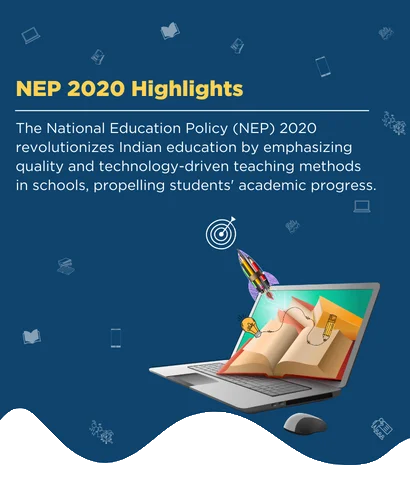No products in the cart.




Key highlights of the NEP 2020









Teacher Training and Professional Development






Summary of the NEP 2020
NEP 2020 introduces several key changes in the education system. It promotes strong foundational education for children, emphasizing the importance of foundational literacy and numeracy to ensure that every child achieves basic literacy and numeracy skills during their formative years. NEP 2020 also proposes a flexible and multidisciplinary curriculum, allowing schools to include a wide range of subjects, encouraging critical thinking and creativity in its students.
Emphasis is also laid on the integration of technology in education, along with reforms in professional development for teachers. Overall, the NEP 2020 aims to transform the Indian education system by empowering schools with 21st-century teaching-learning solutions, helping teachers foster the holistic development and academic growth of their students, preparing them to be leaders in the future.
Reference Link: https://www.education.gov.in/
FAQs
